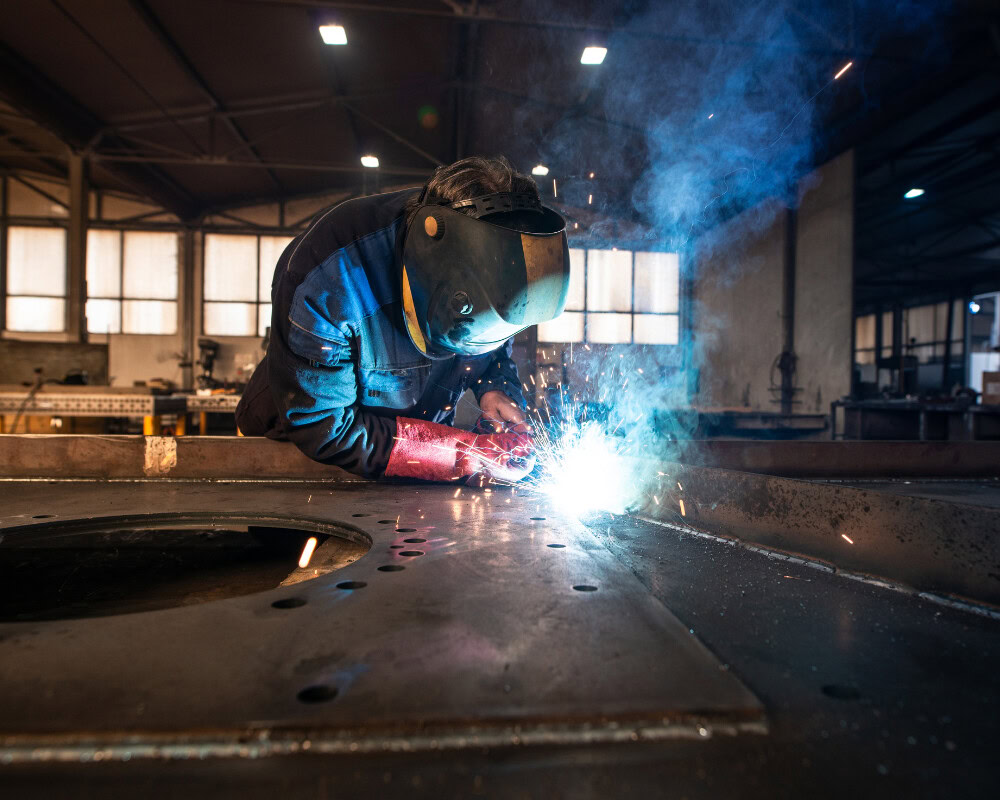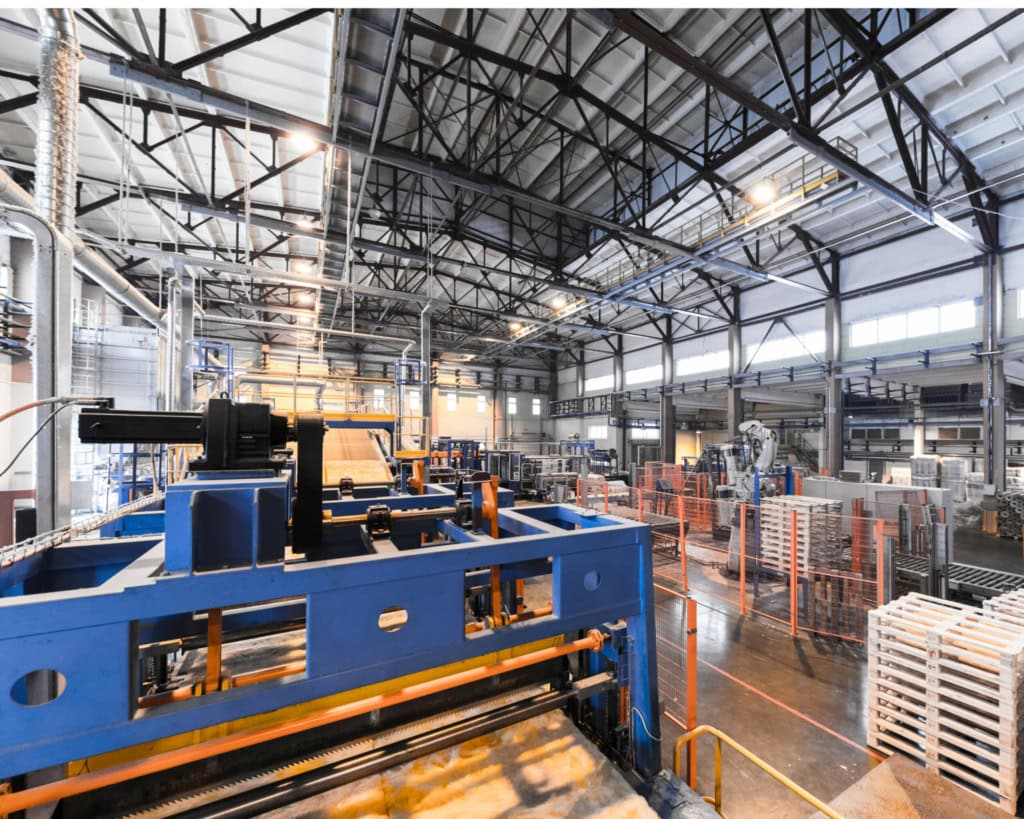Context
(1970 - 1990) Years of glory
In the 1980s, France established itself as the world's leading world leader in the nuclear industryThis was a period often referred to as the glory years of the French nuclear industry. This period, often regarded as the glory years of the French nuclear industry, was marked by rapid development and considerable expansion of the nuclear technology.
At the heart of this rise were key players such asÉlectricité de France (EDF)which played a pivotal role in the development and operation of nuclear power plants. These institutions not only strengthened France's position on the international stage, but also contributed to the country's economic growth.
During this period, France experienced a massive expansion of its nuclear capacity. The construction of new nuclear power plants was booming at the time, resulting in a massive increased demand for specialized skillsThis is particularly true in the fields of welding and nuclear engineering. This demand has stimulated training and development of a highly qualified workforceable to respond to technical and safety requirements rigorous industry standards.
French expertise in nuclear technology was not only recognized nationally, but also in high demand internationally.exporting know-how and further consolidate its reputation as a world leader in this field.
However, despite this period of prosperity and innovation, the nuclear sector was soon to face a number of challenges. major challenges. The following years saw a energy policy developmentsconcerns environmental and a growing gradual ageing of nuclear facilitieschallenges in terms of maintenance, modernization and compliance with safety standards ever more stringent.
So, looking back, the 1970s to 1990s appear to be a golden era for the French nuclear industry, a period when the country firmly established its foundations as a global nuclear power, while laying the groundwork for the challenges ahead.
(1990 - 2022) Abandoned
At the dawn of the 21st century, a paradigm shift has begun in the energy sector, ushering in a new era of energy efficiency. phase-out period for the French nuclear industry. Growing interest in renewable energies and environmental concerns began to overshadow nuclear power, once considered a pillar of the national energy strategy.
Plant closures - 14 reactors planned by 2025
This energy transition has been accelerated by a series of significant political decisions. Among them, the most remarkable was the French government's decision to close 14 nuclear reactors by 2035. This decision, announced by President Emmanuel Macron, was aimed at reduce the share of nuclear power in the French energy mixin line with the country's environmental commitments and energy transition objectives.
However, the process of closing nuclear reactors has given rise to fierce criticism and debate. Some have seen these closures as a weakening of France's energy independenceespecially in the context of the energy crisis and declining Russian gas imports. The closure pledge was spelled out back in November 2018, with an initial plan to end operation of 14 900 MW reactors by 2030, starting with the two Fessenheim reactors in summer 2020.
Despite these announcements, the actual record of closures under Macron's presidency is different. Only two reactors, at Fessenheim, have been shut down under his watch, although the decision was taken before he took office. Other reactors in France, such as Brennilis and the three first-generation reactors at Chinon, were shut down for reasons not directly linked to President Macron's policy, often because of their obsolete technology or other factors.
The broken promise to close more reactors has nevertheless had a considerable impact on the industry. It has led to a reduction in investment in the nuclear sector, and has affected the human resources planning within the sector's companies. As a result, there has been a loss progressive development of specialized skillsparticularly in critical areas such as nuclear welding.
The situation was exacerbated by the lack of a clear vision for the future of nuclear power in France, leading to a disinterest in careers in this industry and a decline in the training of new talent. This phenomenon has resulted in a shrinking skilled workforceessential to the maintenance and operation of nuclear power plants, thus laying the foundations for the the current crisis facing nuclear welders in 2025.
(2022 - Today) A crying need for energy sovereignty
Sovereignty
- Russia-Ukraine Conflict and Impact on Energy/Electricity Supply and Costs: The conflict between Russia and Ukraine has had a considerable impact on energy supplies, particularly gas imports, accentuating the energy vulnerability of many countries, including France. This situation has led to a heightened awareness of the importance of energy sovereignty and highlighted the limits to dependence on external energy sources.
- Resumption of Nuclear Activity in France: In response to this crisis, and in recognition of the stability and independence that nuclear power can offer, France witnessed a major turning point in 2023. After a period of declining nuclear output, due in part to the shutdown of many reactors for maintenance or because of corrosion problems, France undertook a gradual return to service of its nuclear facilities. This recovery marked a significant change in the country's energy policy, aimed at strengthening energy sovereignty and reduce dependence on imported energy sources.
- Political debates and decisions : Emmanuel Macron's 2018 pledge to close 14 nuclear reactors was hotly debated. In reality, only two reactors at Fessenheim were closed under his presidency, but the decision nevertheless influenced the perception of nuclear power in France, giving thea sense of imminent decline in the sector. This prospect has hampered investment in the industry and limited the training and recruitment of skilled personnel, such as nuclear welders, leading to major challenges for the maintenance and expansion of France's nuclear fleet.
- Consequences for the labour market : The shortage of qualified personnel, particularly in specialized trades such as nuclear weldinghas created a bottleneck for the sector. The nuclear industry has found itself in a delicate situation, with a shortage of specialized skills crucial to plant operation and maintenance. This shortage is all the more problematic as France seeks to revitalize its nuclear industry against the backdrop of the current energy crisis.
- Outlook for the future : Despite the challenges, France has embarked on a process of strengthening its energy autonomywith a particular focus on nuclear power. This renewal of the nuclear sector requires considerable efforts in terms of training and recruitment to fill the skills gap and support ambitious new reactor construction projects. The current crisis underlines the importance of long-term planning and adequate preparation to ensure the country's energy security and efficiency.
The current situation, marked by an acute shortage of nuclear welders, reflects the urgent need for a coordinated response to strengthen France's nuclear sector, an essential pillar for achieving the Group's objectives. energy sovereignty objectives and ecological transition.
The Nuclear Welder: A Skills Bottleneck
- The Nuclear Welder - A Highly Technical Profession
The nuclear welder is a professional whose role is crucial in the assembly, installation, modification and maintenance of infrastructure at nuclear sites. The job requires mastery of a variety of welding processes, from manual to automatic, and a thorough understanding of 3D drawings. Visit safety is a constant preoccupation, with the compulsory wearing of protective equipment and the ability to work in complex conditions and postures.
This profession requires high technicalityThis requires continuous rigor and training. Welders can specialize by facility, assembly, industry, process, metal, welding position and part type. Currently, there is a strong demand for nuclear welders in Francewhere the specific requirements of this industry demand special attention in terms of skills and quality.
2. The Critical Importance of Welding in Nuclear Power Plants
In a nuclear reactor, every weld is essential, and must withstand extreme conditions such as high pressure and radioactivity. The discovery of weld-related faults, such as the one that occurred at the Penly power plant, illustrates the seriousness of the consequences of a defective weld.
3. Shortage of Qualified Welders and its Implications
The shortage of qualified welders has become a major problem for the nuclear industry in France. Faced with this shortage, the country had to call on foreign weldersIn addition to these international reinforcements, we have also enlisted the help of a number of French companies, notably American, to help repair reactors affected by corrosion. However, even with these international reinforcements, the French industry remains in a state of flux. lack of skilled workers. To respond to this emergency, initiatives such as the creation of the Hefais school (High School for Welding Training) have been launched to train up to 200 welders a year by 2023.
4. Challenges and Opportunities in Training and Recruitment
France faces a deficit of 7,000 weldersincluding 1 000 are needed specifically in the nuclear industry. This situation creates opportunities for people wishing to train in this field. However, welding is a demanding profession, requiring mobility and adaptability that may not suit everyone.
5. Future prospects
France's nuclear revival, with plans for six new EPR reactors and the next generation of submarines, highlights the urgent need to train more specialist welders. The nuclear welder plays a crucial role in the maintenance and expansion of nuclear capabilities, and their shortage represents a major challenge for the safety and efficiency of the country's energy installations.
Exploring Crises: A Revealer of Weaknesses
1. Covid & Maintenance
The current nuclear welder crisis in France reflects a series of neglects accumulated over decades, particularly in terms of planning and investment in specialist skills. The pandemic of COVID-19 acted as a catalystexacerbating these shortcomings. During this period, many essential maintenance operations were postponed, leading to the discovery of unexpected corrosion and wear problems in several nuclear power plants.
These maintenance delays have not only highlighted the fragility of the sector in the face of a lack of specialized skillsBut they also had a direct impact on the electricity supply. Many power plants found themselves operating below their optimum capacity, resulting in power cuts and exacerbating the energy vulnerability of the country. This crisis served as a alarm signalunderlining the urgent need to strengthen and revitalize expertise in the nuclear field to ensure continuity and security of energy supply.
2. Ukraine/Russia - Energy independence
The Ukraine-Russia conflict in 2022 had a considerable impact on the geopolitics of energy in Europe. This situation has highlighted the dependence of many European countries, including France, on energy importsin particular Russian natural gas. The reduction in these imports has led to a significant rise in energy prices and stressed the need for greater energy independence.
For France, this crisis has reaffirmed the strategic importance of nuclear power as a pillar of its energy autonomy. Visit dependency energy sources, particularly in a context of rising energy prices. tensions The global financial crisis has reinforced the political and industrial will to revitalize and invest in the nuclear sector. This includes not only the maintenance and modernization of existing plants, but also the development of new capacities, notably through the construction of new EPR reactors.
These events revealed the structural weaknesses of the French nuclear sector, particularly in terms of skilled manpower, and accelerated strategic decisions aimed at strengthening the country's energy sovereignty.
Contributing factors to the nuclear welder shortage
Obsolescence and lack of interest from the younger generation: Historically, with the decline in interest in nuclear power, fewer young people have been attracted to careers in this field. This situation is exacerbated by a gradual aging of the current workforceThis is coupled with a lack of effective initiatives to train and prepare the next generation of welders. What's more, existing training programs are often not sufficiently adapted to the specific and rigorous requirements of nuclear welding, creating a mismatch between the skills needed and those required. skills taught and those required in the field.
Impact on the Nuclear Sector
The impact of this crisis on the French nuclear industry is considerable, and can be seen on several levels:
- Plant safety risks : The lack of qualified welders represents a direct safety risk for nuclear facilities. Every weld that fails to meet strict industry standards has the potential to become a point of failure, compromising plant safety and integrity.
- Economic implications : Delays in maintenance and construction projects are not just technical problems, but also result in significant additional costs. These unforeseen expenses can affect the sector's profitability and impose additional financial burdens on companies and, by extension, consumers.
- Threat to France's Energy Position : The shortage of qualified welders is jeopardizing France's ability to maintain its status as a major player in the nuclear energy sector. Without a sufficiently skilled workforce, the country risks losing its strategic position in this crucial field, both in terms of innovation and energy production.
In conclusion, the nuclear welder crisis in France is a complex problem that requires immediate attention and long-term solutions. It calls for coordinated action between governments, educational institutions and industry players to revitalize interest in nuclear careers, modernize training programs and guarantee the safety and efficiency of French nuclear facilities.
Solutions and Initiatives to the Nuclear Welder Shortage
To solve the nuclear welder crisis, several measures and initiatives have been proposed, involving close collaboration between companies, training institutions and governments.
1. Short-term use of foreign labor
Faced with the emergency, one short-term solution was to call in foreign welders. In 2022, EDF mobilized a one hundred highly qualified welders and pipe fitters from the USA and Canada to repair piping at six nuclear reactors affected by corrosion. Although this intervention was temporary, it helped to overcome the immediate shortage of qualified manpower and keep the facilities running.
2. Reminder of Qualified Retirees
About 3,000 former nuclear engineers and techniciansThe company's employees, who are now retired, have been asked to share their essential know-how with younger generations. This approach aims to transfer critical skills and temporarily fill the skills gap.
3. Industry-initiated specialized schools
From schools specializing in nuclear weldingschools, such as Hefais (Haute école de formation en soudage), have been set up with the support of major companies like EDF, Orano, CMN and Naval Group. These schools aim to train 200 welders per yearThese initiatives alone will not suffice to meet the enormous need for qualified welders. However, these initiatives alone will not be enough to meet the enormous need for qualified welders.
4. Government Action Plan for Massive Recruitment
The government has launched a "general mobilization" for employment in the nuclear sector, with the aim of recruiting and training new staff. 100,000 people between 2023 and 2033. This ambitious plan includes welders, boilermakers, engineers and other professionals. The move is in response to the nuclear revival announced by President Macron, and aims to strengthen France's energy sovereignty while helping to combat global warming.
Steering: The Key Role of Technology and Innovation
Successful solutions to the shortage of nuclear welders depend on an effective and sustainable system of skills transfer and management. In this context, companies such as Mercateam play a support role for various players in the sector, helping them to manage and avoid problems arising from the loss of technical know-how, especially in sectors where safety is a key issue.
L'automation and robotics are also key elements in this strategy. Welding robots, capable of working in extreme conditions and with remarkable precision, could greatly relieve the workload of human welders. Although they do not replace the nuclear welder, these technologies optimize maintenance and construction processes, while minimizing human error.
Conclusion
The nuclear welder crisis is a call to action for all those involved. It is crucial to recognize the urgency of the situation and mobilize the resources needed to secure the future of the energy sector. This crisis represents not only a challenge, but also an opportunity to rethink training and work strategies, and guarantee a safe and prosperous future for nuclear power in France.




